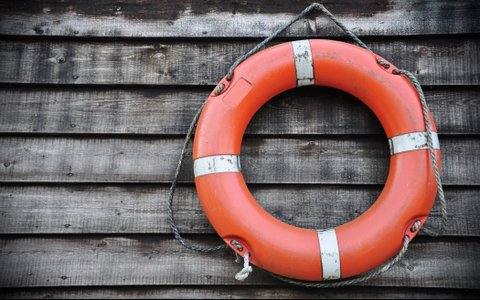How to bounce back after retirement
For many athletes the extinction of the Olympic flame represents the end of a sporting career. Some achieved beyond their wildest dreams in Rio, ending on a high. But for every success story there are also many tales of bad luck, injury or underperformance on the world’s biggest stage.
So what now for the retiring athletes? For those who didn’t reach their goals, bouncing back after retirement may be much harder. They may question all the years of hard work and sacrifice and wonder what comes next.
A career transition takes time, whether you’re an athlete or not. You need time to understand and weigh up your options, to test them against your beliefs and values and to discover what feels right. Do you know what your choices are? Do you have the necessary skills and training? Do you even know what you want? Working out what you want may take years.
Building your resilience is crucial for bouncing back after retirement and to help you navigate this often uncertain and difficult period of your life.
Tips for building your resilience
-
Continue to exercise
Don’t stop sport from one day to the next. Talk to your coach to find the best exercise programme for you for the transition out of sport. And remember what made you do sport in the first place. Find another activity that will keep you fit and be fun.
-
Learn from the past
Think back to when you suffered a setback in the past – an injury, not making the team or failing to meet your goal. What helped you in this situation? What didn’t work so well? What coping skills can you take from this experience to help you with your transition out of sport?
-
Be grateful
Learn to take the positives out of any situation and be thankful for them. Take time out each day to reflect on what went right for you in the past 24 hours. Perhaps you had a great meal or met someone really interesting. Think back on why it was so special and relive the experience. Make this daily reflection a habit and you will see the benefits. And remember to surround yourself with resilient people. Their resilience will rub off on you.
-
Get support
We often hear about former stars down on their luck and struggling to cope. You wouldn’t go into a game or a race without preparation, discussion with your coach, training and a game plan? So why do so many athletes believe they can cope on their own with retirement? Help is available, all you have to do is ask. Talk to a career coach about what you can do next. And if you are feeling depressed, know that you’re not alone. Negative emotions are very common among retiring athletes. See your doctor. Being able to ask for help is a sign of strength.
We know that transitions are tough. They are also unpredictable. We never really know how we will react until we get there. Build up your resilience and your transition will be smoother. Good luck and let me know if you need help bouncing back after retirement from sport.
Find out more about my programme to help professional athletes transition smoothly into life after sport or contact me for an informal chat.

